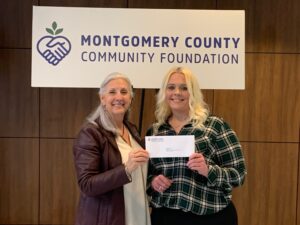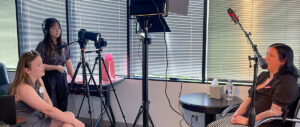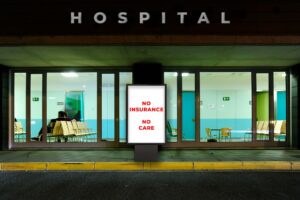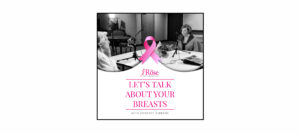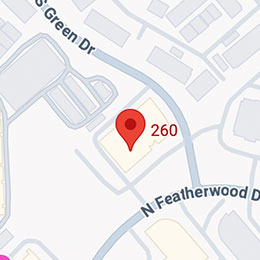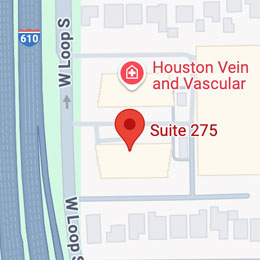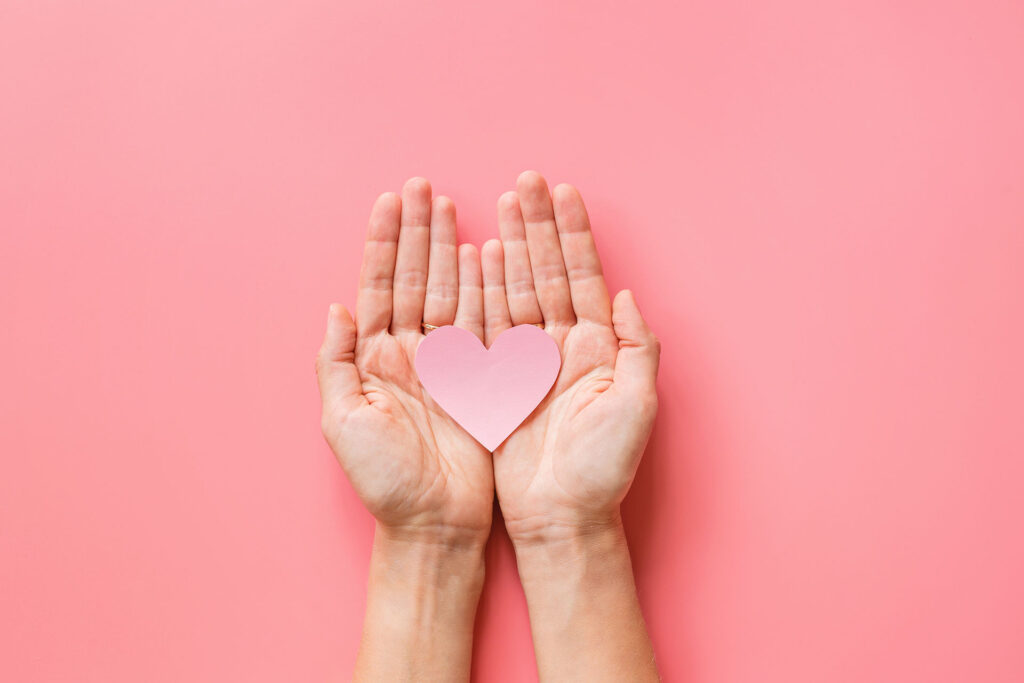Dorothy: [00:00:00] Hi, I’m Dorothy Gibbons, CEO and co founder of The Rose. She didn’t think her story was different enough to share, but as we’ll learn today, Claudia Farinola had a remarkable diagnosis, and her treatment met rare side effects that would last for the rest of her life. Claudia has become one of the Rose’s best champions.
She’s coupled her talents with Emma Jacobs Breast Cancer Foundation and its legendary Tits campaign. And she’s also partnered with Nice Winery to raise thousands of dollars to help uninsured women at the Rose. She has another way of giving that’s just too sweet not to mention. More as we hear her story,
Let’s Talk About Your Breast, a different kind of podcast presented to you by the Rose Breast Center of Excellence and a Texas treasure. You’re going to hear frank discussions about tough topics, and you’re going to learn why knowing about your breast could save your life. Join us as we hear another [00:01:00] story and we answer those tough questions that you may have.
Claudia, you had breast cancer at a fairly young age, so how did you, how did it come about? Did you find a lump? Did it, was it on a mammogram?
Claudia: No, not at all. What happened was my sister, six months prior to my very first mammogram at 42 years old, self diagnosed herself. She found a lump while taking a shower, simply taking a shower, and within the week she was already scheduled for her first mammogram.
She’s only 18 months older than me and they The mammogram came back simply saying that it was heterogeneously dense and no signs of any class, uh, calcifications or, or anything. But [00:02:00] Tina insisted. She said, there is a lump. I feel it. It wasn’t there. And so they did a subsequent ultrasound screening in which they found a fairly large mass.
It was close to five centimeters. And at that point she was at Baylor, but Marvin Zindler, a dear friend of ours at that time, uh, he said, you got to go to M. D. Anderson. These are my people and this is where you got to go. And so Tina went to M. D. Anderson and they of course repeated the screening. And again, the mammogram indicated nothing.
And the ultrasound found the mass. So just by doing due diligence and following in my sister’s footsteps, I felt like I owed it to my family and to myself to also check that box and have my breast exam as well. So I scheduled my mammogram just probably a couple of weeks after Tina’s. And it came back with the exact same [00:03:00] language, the language was dense breasts, nothing visible and see you in a year, which I kind of was uncomfortable with and insisted at this point.
I was also an MD Anderson. It was a kind of an amenity as. family to become a patient. So I was now in cancer prevention and my internist felt great empathy towards me and my mother and my father and said, you know what, with this history, let’s push it. We’re going to reschedule you for another mammogram and an ultrasound six months from now.
So that was April, 2007. And I went back in October 2007 for my second mammogram. Uh, at that point I realized something was different. So, you know, when they go out of the room and they come back and they say, We need more images and, and then you go off to your ultrasound and already [00:04:00] radiologists are coming in.
At that exact moment I knew, oops. Something is off. That’s how I found mine. I had no lump that I actually felt. It was only thereafter with their guidance that I could faintly find this lump. So I’m afraid that I wouldn’t have found it.
Dorothy: So you’ve mentioned some things here that are so important for women to know.
Mammograms are not a hundred percent, dense breast, and that’s, that’s what you and your sister both had, and it simply means that the breast tissue has not started the fatty process, where it just goes adipose, and those are Medical terms that I know most of us don’t even, I’m not even sure I say them right half the time.
But what it means is if you’re breast or dense, then it is always a good idea to have an ultrasound. And sometimes you have to ask for it. [00:05:00] Sometimes, you know, not everybody’s going to do that. So, uh, especially with family history, thank goodness your doctors were aware and on top of that. But six months difference here.
I mean, my gosh, you and your sister, that’s, I don’t think I’ve ever heard a story that’s quite that close.
Claudia: I think about it. Tina had late pregnancies in her life. Her first child was born close to when she was 41 and her second child a year and a couple of months later at 42 and a half, 43. So I had never had a pregnancy.
Is that why perhaps I was in a category of a candidate for breast cancer? I mean, I’ve heard these theories. Uh, is it environmental? I’m not sure. It seems like it’s becoming more and more common. It’s just, The diligence of checking all [00:06:00] your health care.
Dorothy: Well, and that absolutely, you know, we have a lot of theories and we have a lot of data that says, here’s what we say about breast cancer.
And you know, if you’ve never had a child, you’re more at risk. You’re at risk because you’re a woman. Let’s, let’s get real clear on this.
Claudia: Yes.
Dorothy: And, and I tell that to women all the time. I said, don’t. Don’t think because you didn’t have family history, you don’t feel anything, those just don’t count. You know, when 95 percent of the women who are diagnosed do not have family history,
Claudia: Correct.
Dorothy: or don’t know they did, which is another big issue, then, then there’s not one thing that’s going to say for sure you’re going to get cancer. It happens. It happens. It’s just, it’s, uh, and like you said, it is happening to younger women and it is happening more often, uh, to younger women. We’re just, we don’t have an answer [00:07:00] for that.
And if we have anything that we need to convey, it is that you know your body. And you can ask for anything you want. I mean, it is, it is going to be up to you many times to be your own best advocate. Absolutely. And, uh, thank goodness that you and your doctor were both ready to take that deeper look. My goodness.
But now you had some other things that were going on with your cancer. Did Tina have the same issues that you had?
Claudia: No, we had Different profiles. It’s incredible the size of her mass. And that. It was DCIS. It was a ductal carcinoma still lodged in that milk duck and it never became invasive. How interesting. It was incredible.
So, and then with me, it, after the mastectomy, it was determined that I had three masses in one breast, my left breast. Two were invasive and one was [00:08:00] DCIS. Wow. How I didn’t catch it before, I don’t know. I was so small chested. I was a double A. You would think. Wouldn’t you feel it? No, none of that. It was just incredible.
Dorothy: Well, there’s no difference. And it’s very difficult to find a change when your breast is dense because you’ve got a lot of tissue there that’s just not going to let you feel anything. My goodness. And, and then you had some lingering, if you’re comfortable with it, those are the things I’m hoping that you’ll share.
Because again, most people don’t realize there may be some other issues you’ve got to deal with.
Claudia: Sure, sure.
Dorothy: Even after treatment.
Claudia: Of course, of course. And it’s funny, when you asked me to join today, I thought, oh my goodness, I’m just a story with a scripted treatment. And I’m a survivor, but I learned a lot and I had some hiccups through the [00:09:00] course of treatments.
And one of them being, you know, I was, I think it’s important to share my profile of my cancer. I’m always curious to know. What did you have? And, and I was triple positive and, uh, that means I was estrogen, progesterone, and HER2 positive. And my treatment was scripted. I did 16 rounds of chemo, four of which were FAC.
I did, uh, a unilateral mastectomy. Followed by delayed reconstructive surgery two years later. I did ten years of hormone blockers. Five years of tamoxifen because I was pre menopausal at that point. And five years post menopausal I did the letrozole. When I did the Herceptin, uh, they closely monitor your heart function.
And at one point during my Herceptin infusions, which [00:10:00] I thought were easy breezy, I tolerated it. So well, you just went in and you did your infusion and you went home and I was already out and about doing my thing. After one of my treatments, I went up a flight of stairs. And my mother noticed that I had extreme shortness of breath.
And this was at the time that I actually was in Italy and following a doctor there, which is another great story. But, uh, it ended up that I quickly went to the hospital and, uh, an echocardiogram was conducted. And interesting to say that it was conducted by a cardiologist in Italy. And I was so intrigued by that because they’re technicians in America and I said, am I receiving some sort of preferential treatment?
Because [00:11:00] this doctor from MD Anderson is in Italy and he’s following me as a patient and his answer was, no, we do the echo. What an experience to sit there and listen hand in hand while you’re doing the echo. And he’s explaining every function of the heart and what he saw. And his sister was the exact same cancer profile as me and suffered the same.
hiccup in her Herceptin treatment and what it was is my ejection fraction fell over 20 points. We had the baseline from prior to starting Herceptin to that date and I was experiencing congestive heart failure. He immediately, uh, prescribed a beta blocker. I quickly reached out to MD Anderson in Houston and I was directed to Dr. Duran there called, uh, in cardiology, and he agreed with the treatment and to today, I am [00:12:00] still taking the beta blockers on a very low dose. because Dr. Duran feels like the benefits are just far too strong. I tolerate it. I fell into a clinical study of other women in the same situation where the beta blocker lowered the percentage of recurrence in breast cancer.
So he was like, we’re in the middle of this study, Claudia, and we’re going to keep you on this and everything’s going to be just fine. So, although it’s considered transitory and your heart will repair itself after Herceptin, it just felt like it wasn’t worth the risk getting off the beta blocker.
Dorothy: So you’ve covered about seven topics here.
First of all, yes, there are some treatments that will have. The lingering, uh, symptoms and impact chronic, you know, the kind of what you had is, is going to be with you for a long time. [00:13:00] And that is a, is a challenge all its own. And some women don’t realize that, that that does happen to others and you for one have found ways to deal with it.
I’m picking that up now. How, how do you deal with it?
Claudia: I feel. I feel 100 percent healthy and I feel normal and I recognize my great blessings by being still with Dr. Duran and still being a patient of MD Anderson. I have no fear of the disease. I feel like it was just an accident that happened back then and, and I’m, and I feel so healthy today.
Yeah. So as long as I stick to the protocol and. Take my pills as scheduled. I’m fine. I exercise. I do everything he tells me to and and I feel great
Dorothy: So there’s the [00:14:00] other Subjects that I think we stress here all the time. You feel great with your doctor. You trust your doctor You’re gonna do what that doctor asked you to do because you do trust him And if ever ever you didn’t you’d find another doctor you’re looking. Was there any question in your mind that you would participate in that?
Claudia: I think when you sign up to MD Anderson, you want to be a part, of anything and everything.
Dorothy: Yeah.
Claudia: Known or unknown, please. Science is, is Brilliant. And we need to learn. You are no longer embarrassed when three residents walk in and they’re there with your doctor. It’s a learning experience. I loved it when I would visit my oncologist, Dr. Linton, and, uh, three residents would walk in and I could listen to their banter and their dialogue and conversation in regard to my case. I learned from them. I [00:15:00] appreciated it. I saw it as more hands on deck, more brilliant minds. Let’s all contribute to science and, uh, wherever they can put your data and come out with.
Results. I applaud them.
Dorothy: Right. I don’t think our general public realizes how many changes have happened in treatment simply because of clinical trials. You know, you just have to have that information to be able to adjust medicines, go with a different one. It’s so important. And so many of our different populations are not represented in clinical trials.
And so it’s, it’s something we just have to keep working at. We’re not going to figure it out any other way. That’s, that’s so important. So now how, I know you’re on the board of the Emma Jacobs Breast Cancer Foundation. And she put the breast in there after she had started.
Claudia: [00:16:00] She did.
Dorothy: How’d you meet her?
Claudia: You know, I met Emma through mutual friends.
And it was probably a year before her own breast cancer diagnosis. And I remember it like yesterday. Uh, she had invited us over for dinner. So, uh, there were four of us at dinner. And I said, let me cook. Because she just wanted to talk about what was in front of her. And so I went to her house, we had a lovely dinner, it was very emotional, and she was starting her, her treatment plan, her journey shortly thereafter.
And uh, we weren’t very close friends, however, Emma has this natural effect to bring people together and to, And to raise monies and awareness. So I was already attending events at this point that Emma would [00:17:00] invite me to. And so after her diagnosis, I thought to myself, how can I help Emma? I’m one of those people that have to take action.
I’m not a person that. puts her head in the sand or walks away from disease and that kind of fear. I’m not that person that just says the right things out of obligation. I’m the person that has to do something about it, whether it’s small. Or, or if it makes a real impact. So what I did, what is what I do best is food.
We’ve always been in the restaurant business with my family, my father and mom. We had Pino’s Italian Restaurant.
Dorothy: One of the best ones around and very famous.
Claudia: And at that time we were still open and I said, I know what I can do. I’m going to feed them. Emma was going through her treatments. Patrick was holding the house down and being her [00:18:00] caretaker, and Emma’s son was seven years old, so I would just pop over unannounced as you could.
Anytime at the pat— at their house, Emma and Patrick’s home, and as she was awake, I would say hello. Fill up her refrigerator with food. As she was asleep, I would just put the food in the refrigerator with instructions for Patrick and leave. So that’s what I could do, food and comfort.
Dorothy: And you know, again, we always go, how can I help?
Call me if you need anything. And women will not call usually. So we just have to do it. We have to find what we can do and do it. And I, I know that meant so much to her and that was such a hard time. For all of them, just to have that there, imagine. You know, what a gift that was for her.
Claudia: It was, it was the first time that first [00:19:00] hand I saw what breast cancer was and, and see the effect on her physically and, uh, it just was branded in my mind.
It was incredible.
Dorothy: So, now, you’ve been a board member since?
Claudia: I think it’s been close to 10 years.
Dorothy: And there’s an acronym that y’all use, which, which really, really says it all.
Claudia: Yes.
Dorothy: And, and so reflects the way that you and Emma both handled, uh, What you had to handle and your cancers, but, but tell us about that.
Who came up with it? How did it come around?
Claudia: The Acronym. Okay. First I’ll say it’s 100 percent on Emma. Oh, okay. And if you know, Emma, you, as you do, she is just, uh, uh, power larger than life with this [00:20:00] fabulous attitude and, and will to live and just. Fantastic. So Emma came up with this acronym, T. I. T. S., and I was just horrified.
And it stood for Taking Initiative to Survive. I just thought, oh my goodness, people are going to think. We’re crazy, and it’s so inappropriate and in fact every time we even had to mention her foundation We said it the long way it was the Emma Jacobs Breast Cancer Foundation Taking Initiative to Survive and And it was just exhausting and then I don’t know one day it just finally clicked.
I accept it. It’s “TITS” And the logo is just oh the curves of underneath the breast and the the tit sits right there at your cleavage it’s just embarrassing but it [00:21:00] is what it is and it’s Emma and we embrace it and it defines exactly what we’re doing.
Dorothy: Absolutely. Absolutely. And I remember the first time I met Emma and I had not put it all together.
You know, I had, uh, I’d come in to my office. There y’all were. And she, she hit me with it almost from the beginning. You know, this is what we did and this is what we call it. And I’m just, my mouth was open. I didn’t know what to do. And what a gift the foundation has been to the Rose. Just out of the blue, we, I mean, you know, she, she’s told me many times she’s raised money for us before, but it was never like this last few years.
My gosh, that is huge amounts of money that, you know, we have grants that we work so hard to get and, and never even. Come to you the amounts that y’all have raised for us.
Claudia: Thank you the truth is we Were raising money for [00:22:00] Dr. Anthony Lucci and his breast cancer research at md anderson close to 10 years and then covid hit and it kind of wrecked havoc on everyone’s lives but kind of put a pause on fundraising and And clearly, the Rose even had to suspend business and, and what have you.
And then after COVID and Emma was ready to get back to work, she called me up and she said, Claudia, who do you think we should support this year with all the funds that we raise? And it took me like a nanosecond to say. It’s The Rose, and it has to be The Rose. People have avoided health care for these couple of years.
They need to get back to work. We need to do something. We need to make an impact. Dr. Lucci is going to be just fine. He’s a [00:23:00] very close friend. We’ve raised a lot of money for him. MD Anderson is fine. We need to be boots in the field. We need to make an impact. And this is it. And she’s like, stop, stop. I agree.
Dorothy: Oh. Oh.
Claudia: And it was in that.
Dorothy: How did you know about The Rose?
Claudia: Well, we’ve talked about it before because she was thinking of diversifying the funds and, and I became aware and, and many years ago, my mother also came to The Rose when she was uninsured and, and paid for a mammogram and, and had such a valuable, wonderful experience that I kept circling back to you.
And this organization and, uh, she embraced it. And it was embarrassing to say that we were fast approaching this event at Nice Winery. They generously bottle a rosé and support of breast cancer and Emma Jacobs TITS Foundation and, uh, we [00:24:00] decided the money was going to go to the Rose and it’s probably two weeks before the event.
And I was thinking to myself, Oh, my goodness, we haven’t even told The Rose. What if they think we’re this crazy group trying to capitalize off their name to raise money? So I simply called the Rose and said hi, my name is Claudia Farinola and I’m on the board of and I said it the long way I didn’t want you to think we were crazy too and we’re gonna have an event in two weeks Is there any literature you can support us with that’s there because we’re gonna raise money for you.
Dorothy: Oh, I remember. Yeah.
Claudia: And I want to say it was an intern or a very young lady, uh, that quickly referred the call to Shannon McNair. And, and so Shannon came to the event. We did it. It just, I’m, there’s no doubt in my mind. You thought. We were bananas, especially when you saw the [00:25:00] acronym itself in our logo, but we were for real.
And we wanted to support you and it kind of grew from that event and Ryan made a commitment throughout the rest of the month and then it ended up being the rest of the year that all the a certain amount of proceeds with additional proceeds would go towards The Rose and and in year one. It’s shocking.
We were able to write a check for $50,000.
Dorothy: Yes.
Claudia: And to some folks, it may not sound like a big number, but I have no doubt that it went a really long
Dorothy: way. It is a big number and it did go a very long way. And I do remember Shannon coming up and saying, Hey, raise this money. I mean, I was like, Oh my gosh. And, and we truly didn’t have a clue.
It was—
Claudia: yeah. I know.
Dorothy: But you know, those are the stories that, that we live all around here. The ones of somebody heard, somebody’s mother was helped [00:26:00] way back when, or their sister, their cousin. And, and it is, um, you know, we call them God things, we call them whatever, but it’s, it always amazes me how people will be drawn to come and help us right when we need it the most.
That was one of the most critical times that we had. And uh, it’s just, we’re just so grateful to everyone with the foundation. And of course, meeting Emma was like having a. Tornado run over you.
You even said, um, Ryan had a little trouble with the the acronym at first. Yeah, he’s such a gentleman, but I can imagine probably worse than my reaction.
Claudia: Oh, I’m sure. And the logo is actually on the back of the wine bottle, so it’s there. It’s there.
Dorothy: Right. Now, you’ve always been a part of giving back to the community, though.[00:27:00]
Tell us a little something. I mean, I know the restaurant. I don’t know a lot about that story. But I know you’re always involved in the community in some way.
Claudia: Well, I think I was fortunate in the fact that I went to parochial schools. It was important to my parents. And so I went to St. Michael’s Catholic School in elementary.
And it was part of the curriculum. It’s in the DNA just to give back, give back, give back. I think it I turned to something more important when I went to Duchesne Academy Of The Sacred Heart and they actually put it in our curriculum that every other week for half a day we would leave campus and we volunteered somewhere and it was our choice.
Where did we want to go and I volunteered it when it was Herman Hospital and I chose to Be in the playroom with [00:28:00] children and kind of keep them entertained and they might be going through cancer treatment or other Illnesses or disease or burn victim? it was it was my chance to give back back then and it kind of just stuck and with Pinos. One of our closest friends was Marvin Zindler.
Now, I don’t know anyone that’s more, that was more of a philanthropist and gave back to the community and to the world, and he inspired me. So I feel like my upbringing with Duchesne, St. Michael’s, Marvin Zindler, and move forward when I went to MD Anderson, the volunteers there. And the Breast Center. I was so impressed and my day was always Monday and I had two volunteers and I won the lottery.
It was Susan Rafty. Oh yes, yes. Pink Ribbons Project. [00:29:00] And Jeannie Frazier. Oh my goodness, yes. And when they were going to change my schedule, I had to stop them. I said, no, no, no, no. I’m a Monday girl. I’ve got to be there with Susan and Jeannie and their work inspired me and I don’t know how can you make a commitment every single week on Monday to be there for eight hours and then Susan was running Pink Ribbon Project and, and I thought, Oh my gosh, I am nobody.
These women are powerhouses of giving back. So all these sort of. Things came together. Yeah, I came together.
Dorothy: And of course, you know, I I didn’t put the connection of the Cupcakes.
Claudia: Yes.
Dorothy: Yes. So now just tell us real quickly about how that helps us, too We we didn’t even realize the connection there for.
Claudia: Yes. Yes, so When we made the commit, when I made that crazy call to the Rose and said, [00:30:00] Hey, we’re going to have an event and we’re going to give you money at Nice Winery, I said to Brad, because this was in August when we did the first party and started promoting the Rose as The recipient of all funds we raised I said to that was august I said to brad well breast cancer month is coming up in october and My husband is co- owner of Crave Cupcakes with another lovely couple.
I said we need to do october for The Rose We need to do a Dollar a cupcake on the strawberry and put a little pink ribbon on there and and he said you’re right so we jumped in and kind of after Ryan and Ian at Nice Winery and Emma and everyone we felt like we had to participate as well.
Dorothy: And that was wonderful.
Claudia: Yeah,
Dorothy: it was great.
Claudia: It was it was
Dorothy: Well as we close up now here you are so many years [00:31:00] later. You’re still a Advocates, you’re still involved. How important has all that been to your recovery or to, has this, has this really given back to you as much as you’ve given to it?
Claudia: Absolutely. I, I feel like, and I don’t want to sound strange, I feel like it’s been a blessing.
That I was faced with this health challenge and it gave me great knowledge of having to really know my body. And the experience at MD Anderson and meeting so many young women in their twenties and thirties, that were going through the same thing as me. And I just had to put them through the inquisition, like how [00:32:00] every single response was, I found it myself.
And I realized, Oh, thank God. And thank. Goodness, you were your own advocate and you followed, you did your due diligence. And catching it early is, is so important. It’s, it’s, I was so impressed that yes, I, I want to stay part of this community. I feel like it somehow creates a sisterhood, a sorority, if you will, with other ladies that have gone through this.
And like I said, I’m an action person. So if I see anyone that perhaps. appears to be going through chemotherapy. I kind of gauge their pulse and sneak in a little bit. And when I can, I want to be that person to offer empathy or, or to talk about it. So that’s just how I am.
Dorothy: And, and [00:33:00] that is what After all these years of being with the Rose, we talk about it now, and we didn’t back then, and that is so important.
It’s a big part of healing. It’s a big part of support. And the other thing that you mentioned was the clinical breast exam, the physical self exam that every woman can do. You know, it’s free. You can do it every month, but I cannot tell you how many women have found. their own cancers. It’s just so important, such an important step for every woman to take.
Claudia: It’s just a simple task. You’re taking a bath. You’re taking a shower. Soap up.
Dorothy: Yeah. Yeah.
Claudia: And, uh, it’s as simple as that. And then if nothing, you know, and it comes to the age where it’s time to do your first mammogram. Um, put it on your checklist and make it happen.
Dorothy: That’s it. We have to take care of ourselves.
I know you had wonderful, wonderful breast doctors [00:34:00] working with you at the beginning. Do you want to tell us anything about them?
Claudia: Yes. So when I had my first mammogram at MD Anderson, I just. Arbitrarily was dropped into the system and cancer prevention and my doctor was an internist. Her name was Dr. Allison Blazek and wow, was I lucky. She was amazing. And subsequently, uh, how I won. I had the chance to be a patient of Dr. Jennifer Linton as my oncologist, but most importantly, my surgical oncologist was a Dr. Singeltary. And my reconstructive surgeon was Dr. Elizabeth Boehme. Both of those two, Dr. Boehme and Dr. Singeltary, took care of my sister six months before me. My relationship with them was already there. When I was [00:35:00] diagnosed, I ran to them with tears and said, You’ve got to take care of me too. Um. It’s just so sad that both of these women have passed and far too young. Dr. Singeltary was 62 years old and Dr. Boehme was 53. And one of the reasons I had a delayed reconstructive surgery of two years was because of, one, they could barely close me up. I was a bit small and, and I, I, They couldn’t immediately put in a tissue expander, it had to be delayed. But then Dr. Boehm was diagnosed with colon cancer, and she came to me and said, I have to.
Stop for just a little bit. I can refer you to another doctor or let’s wait and see how I feel. And I said, there’s no one that’s going to touch me. You healed my sister and you’re my doctor. [00:36:00] And so I was able to complete my reconstructive surgery with Dr. Boehme and it’s just breaks my heart. Such a beautiful lady.
She, I’ve never seen a lady like her. She would wear, you know, high heels and her hair done, and she was just so beautiful. And I remember her saying, now I know what you’re going through, Claudia, when she was going through her cancer treatments. And I said, Dr. Boehme, I had no doubt that you, Didn’t know what I was going through and I wish you didn’t have to go through this yourself We were very blessed my sister and I to have such a remarkable team.
Dorothy: Oh you were and Both of those women were instrumental when the Rose first started just giving this Encouragement, advice, you know, we, we were so clueless about a lot of things, so, yeah, they are missed. Very much so. Well, thank you so much for being with us today. You [00:37:00] know, we have to have you back because I know all the other stories you have that we couldn’t go into today, but we will.
And just appreciate so much everything that the Foundation’s done and that you’ve done personally. Appreciate you.
Claudia: Thank you. And thank you for having me. Really.
Dorothy: Absolutely.
Claudia: I’m. Very honored. Thank you.
Post-Credits: Thank you for joining us today on Let’s Talk About Your Breasts. This podcast is brought to you by the Rose.
Visit therose.org to learn more about our organization. Subscribe to our podcast, share episodes with friends, and join the conversation on social media using hashtag. Let’s talk about your breasts. We welcome your feedback and suggestions. Consider supporting the Rose. Your gift can make the difference to a person in need.
And remember, self care is not selfish. It’s essential.

